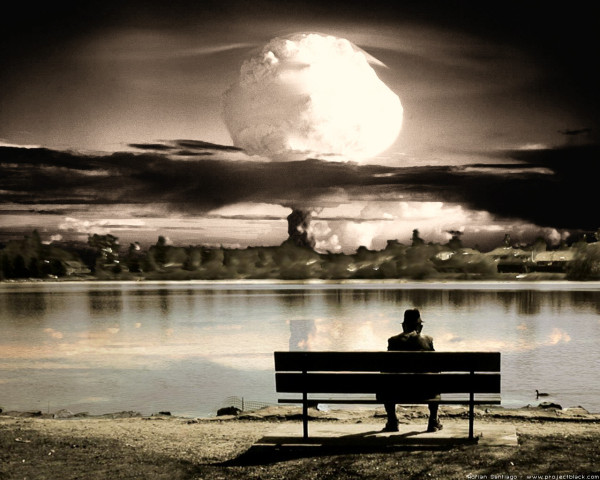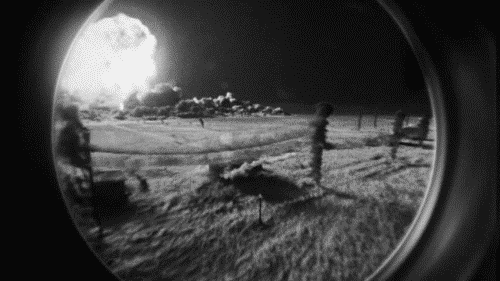 BY WILLIAM C. HENRY President Eisenhower was oh so right. It didn’t have to happen. And, in fact, it should not have happened. On August 6th and 9th, 1945, the United States dropped atomic bombs on Hiroshima and Nagasaki. Over 200,000 Japanese civilians — mostly women, children and the elderly — were annihilated. The dead included some two dozen American and Dutch prisoners of war.
BY WILLIAM C. HENRY President Eisenhower was oh so right. It didn’t have to happen. And, in fact, it should not have happened. On August 6th and 9th, 1945, the United States dropped atomic bombs on Hiroshima and Nagasaki. Over 200,000 Japanese civilians — mostly women, children and the elderly — were annihilated. The dead included some two dozen American and Dutch prisoners of war.
It didn’t have to happen. It should not have happened. There WERE viable alternatives. We could have dropped an atomic bomb on a far less densely populated area of Japan. We could have subsequently informed the Japanese leadership that unless a full and complete unconditional surrender was immediately forthcoming, another bomb just like it would be dropped on Tokyo.
We could have seen to it that the Japanese leadership received film copies (by parachute drops over the Japanese Imperial living quarters if necessary) of all the atomic bomb tests we had conducted along with unequivocal notice that unless surrender was immediate and unconditional, a portion of our atomic arsenal would be dropped on major Japanese population centers including the Imperial grounds.
There were any number of alternative locations within the Japanese nation where we could have dropped the bombs in order to display what their horrific power would do. There were, in fact, numerous means of alerting Japan’s leadership to the unimaginable consequences of ignoring the warnings that we would no longer tolerate any further delay of immediate and complete surrender WITHOUT dropping atomic bombs on the Japanese mainland.
By the time of the bombing we had instituted a near complete strangulation type naval blockade of Japan. Literally nothing was getting into or out of the islands nation. Deprivation alone would eventually have forced total Japanese capitulation. Truman’s statements to the contrary, we would not have had to initiate a ground invasion of Japan in order to bring about its submission.
Many influential Americans including those in the military felt (and stated as much) that the war had already been won and that an unconditional Japanese surrender was likely forthcoming in as little as a few weeks of the would-be bomb droppings. Tolerable arrangements were already on the table regarding retention of certain aspects of the monarchy acceptable to the Emperor thus negating the necessity or effectiveness of dropping the bombs.
In other words, where WERE America’s earnest attempts to deliver the message: “If you do not immediately accede to our demands, this is what you will be bringing upon yourselves and the Japanese populace.” So many possible alternative means to avoid the horrific deaths of thousands upon thousands of innocent women, children and elderly Japanese civilians were ignored. So many possible notification options for forcing the Japanese leadership into an unconditional cessation of hostilities were neglected.
Two days following the bombing, Russia invaded Manchuria and declared war on Japan. That fact alone as much as any atom bomb dropping would have instilled sufficient fear and hopelessness in the minds of the Emperor and Japanese military leadership to throw in the towel. They knew that that spelled the end of the end.
It’s well worth mentioning that there were many high-ranking, highly informed individuals who sincerely believed that the dropping of atomic bombs on Hiroshima and Nagasaki was intended more as an FYI warning to the Soviet Union than a deadly missive to the Japanese leadership. Regardless, it’s important to keep in mind that what was done on August 6th, 1945, was done by a nation that had claimed and would continue to claim to always be holding the higher moral ground in any conflict it engaged in at any time anywhere on earth.
I think I’ll leave it to Kurt Vonnegut to best describe what happened for what it was: “I thought scientists were going to find out exactly how everything worked, and then make it work better. I fully expected that by the time I was twenty-one, some scientist, maybe my brother, would have taken a color photograph of God Almighty—and sold it to Popular Mechanics magazine. Scientific truth was going to make us so happy and comfortable. What actually happened when I was twenty-one was that we dropped scientific truth on Hiroshima.” Along with an American moral truth as well.
PS: Did you know that Trump is said to have asked 3 times in a national security briefing why we couldn’t use nuclear weapons if we had them?


